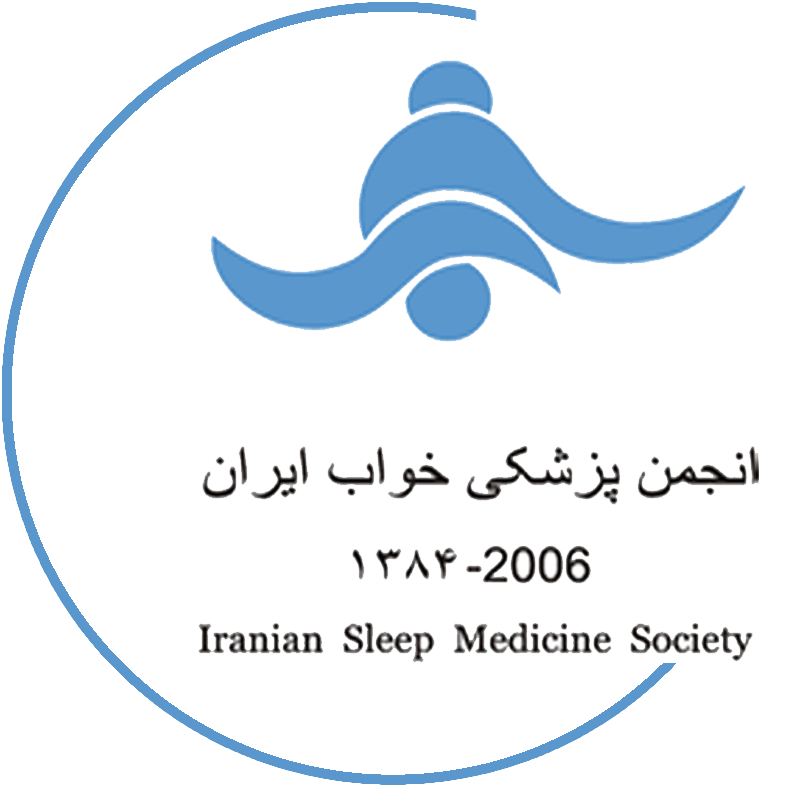The Disadvantages of Normal Circadian Chronotype in Medical Students During the Most Demanding Sections of the Objective Structured Clinical Examination (OSCE)
Abstract
Background and Objective: Previous studies had examined the effect of learning in young adults with generally worse results in cases with the delayed sleep-wake phase disorder. In this study, the relationship between circadian rhythm preferences and objective structured clinical examination (OSCE) results was examined in medical students.
Materials and Methods: This study was conducted during the OSCE for clinical license in medical students who were graduation candidates. The reduced form of the Horne and Ostberg Morningness-Eveningness Questionnaire was used to estimate their circadian chronotype. The OSCE consisted of 12 stations, which evaluated different clinical skills, as well as participant’s medical knowledge. The effect of morningness-eveningness preference of each participant on score was evaluated within each station of OSCE.
Results: In total, 78 students participated out of a total of 114 clinically competent candidates (aged 25-34 years) were evaluated. In terms of sex, 56% of the students were girl, who obtained significantly higher grades in three stations (P < 0.05). The grades of students with delayed sleep-wake chronotypes were higher in most of the stations; however, the difference was statistically significant in only one station (P = 0.045), which was the most difficult station of the exam. Nevertheless, the delayed sleep-wake chronotype was associated with excessive daytime sleepiness (P = 0.002).
Conclusion: Contrary to other similar studies in medical students, normal circadian chronotype was associated with poorer outcome in the OSCE; which may be explained by unusual student training hours during shifts, and the resultant available time for undisturbed study .
2. Diekelmann S, Born J. The memory function of sleep. Nat Rev Neurosci 2010; 11: 114-26.
3.Rattenborg NC, Martinez-Gonzalez D, Roth TC, et al. Hippocampal memory consolidation during sleep: A comparison of mammals and birds. Biol Rev Camb Philos Soc 2011; 86: 658-91.
4. Dijk DJ, Czeisler CA. Contribution of the circadian pacemaker and the sleep homeostat to sleep propensity, sleep structure, electroencephalographic slow waves, and sleep spindle activity in humans. J Neurosci 1995; 15: 3526-38.
5. Santhi N, Lazar AS, McCabe PJ, et al. Sex differences in the circadian regulation of sleep and waking cognition in humans. Proc Natl Acad Sci USA 2016; 113: E2730-E2739.
6. Aschoff J. Circadian rhythms in man. Science 1965;148: 1427-32.
7.Roenneberg T, Kumar CJ, Merrow M. The human circadian clock entrains to sun time. Curr Biol 2007; 17: R44-R45.
8. Wever RA. Influence of physical workload on freerunning circadian rhythms of man. Pflugers Arch 1979; 381: 119-26.
9.Roenneberg T, Kuehnle T, Juda M, et al. Epidemiology of the human circadian clock. Sleep Med Rev 2007; 11: 429-38.
10. Gibson ES, Powles AC, Thabane L, et al. "Sleepiness" is serious in adolescence: Two surveys of 3235 Canadian
students. BMC Public Health 2006; 6: 116.
11. Roberts RE, Roberts CR, Duong HT. Sleepless in adolescence: prospective data on sleep deprivation, health and functioning. J Adolesc 2009; 32: 1045-57.
12. Wolfson AR, Carskadon MA. Sleep schedules and daytime functioning in adolescents. Child Dev 1998; 69: 875-87.
13. Wittmann M, Dinich J, Merrow M, et al. Social jetlag: Misalignment of biological and social time. Chronobiol Int 2006; 23: 497-509.
14. Genzel L, Ahrberg K, Roselli C, et al. Sleep timing is more important than sleep length or quality for medical school performance. Chronobiol Int 2013; 30: 766-71.
15. Haraszti RA, Ella K, Gyongyosi N, et al. Social jetlag negatively correlates with academic performance in undergraduates. Chronobiol Int 2014; 31: 603-12.
16. Borisenkov MF, Perminova EV, Kosova AL. Chronotype, sleep length, and school achievement of 11- to 23-year-old students in northern European Russia. Chronobiol Int 2010; 27: 1259-70.
17. Besoluk S, Onder I, Deveci I. Morningnesseveningness preferences and academic achievement of university students. Chronobiol Int 2011; 28: 118-25.
18. Escribano C, Diaz-Morales JF, Delgado P, et al. Morningness-eveningness and school performance among Spanish adolescents: Further evidence. Learn Individ Differ 2012; 22: 409-13.
19. Preckel F, Lipnevich AA, Boehme K, et al. Morningness-eveningness and educational outcomes: The lark has an advantage over the owl at high school. Br J Educ Psychol 2013; 83: 114-34.
20. Randler C, Frech D. Correlation between morningness-eveningness and final school leaving exams. Biol Rhythm Res 2006; 37: 233-9.
21. Higuchi S, Liu Y, Yuasa T, et al. Diurnal variation in the P300 component of human cognitive eventrelated potential. Chronobiol Int 2000; 17: 669-78.
22. Knight M, Mather M. Look out-it's your off-peak time of day! Time of day matters more for alerting than for rienting or executive attention. Exp Aging Res 2013; 39: 305-21.
23. Agoston C, Urban R, Rigo A, et al. Morningnesseveningness and caffeine consumption: A largescale path-analysis study. Chronobiol Int 2019; 36: 1301-9.
24. Touitou Y. Adolescent sleep misalignment: A chronic jet lag and a matter of public health. J Physiol Paris 2013; 107: 323-6.
25. Meijer AM. Chronic sleep reduction, functioning at school and school achievement in preadolescents. J Sleep Res 2008; 17: 395-405.
26. Scheer FA, Shea TJ, Hilton MF, et al. An endogenous circadian rhythm in sleep inertia results in greatest cognitive impairment upon awakening during the biological night. J Biol Rhythms 2008; 23: 353-61.
27. Kantermann T, Wehrens SMT, Ulhoa MA, et al. Noisy and individual, but doable: Shift-work research in humans. Prog Brain Res 2012; 199: 399-411.
28. Levandovski R, Dantas G, Fernandes LC, et al. Depression scores associate with chronotype and social jetlag in a rural population. Chronobiol Int 2011; 28:771-8.
29. Roenneberg T, Allebrandt KV, Merrow M, et al. Social jetlag and obesity. Curr Biol 2012; 22: 939-43.
| Files | ||
| Issue | Vol 4 No 3-4 (2019): Summer-Autumn | |
| Section | Original Article(s) | |
| Keywords | ||
| Circadian rhythm; Objective structured clinical examination; Medical students; Morningness; Eveningness | ||
| Rights and permissions | |

|
This work is licensed under a Creative Commons Attribution-NonCommercial 4.0 International License. |



